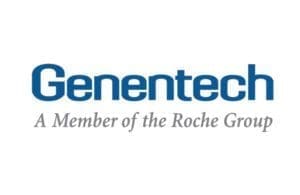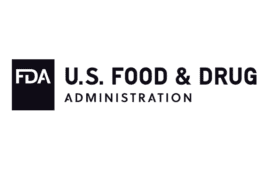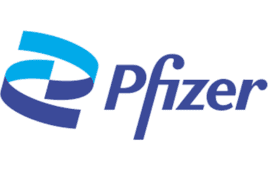 At ASH 2022, Roche (SWX: ROG) subsidiary Genentech presented new data demonstrating the potential of glofitamab and mosunetuzumab, its investigational CD20xCD3 T-cell engaging bispecific antibodies, as fixed-duration, off-the-shelf treatment options for two types of non-Hodgkin’s lymphoma (NHL) – large B-cell lymphoma (LBCL) and follicular lymphoma (FL), respectively. “The new data demonstrated durable and impressive patient responses, including complete remissions, with glofitamab and mosunetuzumab when given for a fixed period of time,” said Dr. Ginna Laport, vice president, global head of lymphoma/CLL development franchise at Genentech.
At ASH 2022, Roche (SWX: ROG) subsidiary Genentech presented new data demonstrating the potential of glofitamab and mosunetuzumab, its investigational CD20xCD3 T-cell engaging bispecific antibodies, as fixed-duration, off-the-shelf treatment options for two types of non-Hodgkin’s lymphoma (NHL) – large B-cell lymphoma (LBCL) and follicular lymphoma (FL), respectively. “The new data demonstrated durable and impressive patient responses, including complete remissions, with glofitamab and mosunetuzumab when given for a fixed period of time,” said Dr. Ginna Laport, vice president, global head of lymphoma/CLL development franchise at Genentech.

Dr. Ginna Laport
“Given the findings, we believe our investigational bispecifics offer new hope for people living with these types of lymphoma,” Laport said.
In the following interview, Laport opens up about the promise of CD20xCD3 T-cell engaging bispecific antibodies, the traditional difficulties involved in treating cancers such as follicular lymphoma and how the treatment of lymphoma could evolve in the coming years.
Also weighing in are Dr. Juliana Biondo, medical executive director/medical partner, rare blood disorders at Genentech and Dr. John Pasi, global franchise head, hematology and rare blood diseases, product development at Roche.
What was the feedback like at ASH for the CD20xCD3 T-cell engaging bispecific antibodies mosunetuzumab and glofitamab?
Laport: We were thrilled to see that the data presented on our bispecific antibodies at ASH generated interest and excitement from researchers and healthcare providers about the scientific progress being made to address diverse patient needs.
If the FDA approved mosunetuzumab, how would you imagine that the bispecific antibody changes the treatment landscape for people with relapsed/refractory (R/R) follicular lymphoma (FL) who have received at least two prior systemic therapies?
Laport: In my previous role before Genentech, I treated patients with FL for nearly 20 years. FL is an incurable and indolent (slow-growing) blood cancer that impacts approximately 13,000 Americans each year. Despite treatment advances, FL often relapses after initial treatment and becomes increasingly difficult to treat each time it returns. Currently, there is no standard of care treatment or sequence of treatments for patients with relapsed or refractory FL. New treatment options for patients with relapsed and refractory FL are urgently needed.
How does the interim data from the HAVEN 7 study reinforce the efficacy and safety of Hemlibra (emicizumab-kxwh) in infants with severe hemophilia A without factor VIII inhibitors?

Dr. Juliana Biondo
Biondo: The results of this interim analysis from the HAVEN 7 study showed that patients receiving Hemlibra prophylaxis achieved meaningful bleed control with a favorable safety profile in infants with severe hemophilia A. While this is an interim analysis, if the results of the final analysis are consistent with what we have presented, we believe Hemlibra can provide a safe, effective and flexible preventative treatment option for the youngest patients.
Early preventative treatment is essential for people with hemophilia A, as studies have shown that early prophylaxis improves long-term outcomes. However, for many infants, prophylaxis is not started until after the first year of life because of the high treatment burden. The ideal prophylaxis for infants, including newborns, is one that can be delivered without the need of a surgically placed central venous catheter and can provide protection from bleeding, especially intracranial hemorrhage, which can be life-threatening.
Could you summarize the first Phase 3 (COMMODORE 3) data for crovalimab and its co-primary efficacy endpoints?

Dr. John Pasi
Pasi: Results from the primary analysis of the COMMODORE 3 study, which took place in China, demonstrated that crovalimab is efficacious and well-tolerated in people with paroxysmal nocturnal hemoglobinuria (PNH), an ultra-rare and life-threatening blood condition.
The study met its co-primary efficacy endpoints of transfusion avoidance (TA) and hemolysis control, demonstrating that participants with PNH, who have not been treated previously with complement inhibitors and who received subcutaneous crovalimab injections every four weeks, achieved disease control. The overall safety data were consistent with the known safety profile of C5 inhibitors and underlying disease, with no new safety signals identified.
[Related: Genentech’s clinical supply center rethinks biologics manufacturing]
The availability of complement inhibitors is extremely limited in China and there remains a high clinical need for people living with PNH. Crovalimab has been engineered to be recycled into circulation, enabling sustained complement inhibition, and potentially reducing the treatment burden associated with currently available treatments.
The data from this study have been submitted to health authorities in China for approval consideration. Two additional Phase 3 studies in PNH, COMMODORE 1 and COMMODORE 2, are expected to be read out in 2023 and support further submissions to health authorities around the world.
Could you touch on the potential impact of Polivy (polatuzumab vedotin-piiq) in previously untreated diffuse large B-cell lymphoma (DLBCL) patients?
Laport: New and updated data from the pivotal Phase 3 POLARIX study showed the potential benefit of Polivy plus Rituxan, cyclophosphamide, doxorubicin and prednisone (R-CHP) in improving outcomes for patients with previously untreated DLBCL, based on three-year progression-free survival (PFS) data that continued to demonstrate a statistically significant reduction in the risk of disease worsening or death compared to the standard of care, Rituxan, plus cyclophosphamide, doxorubicin, vincristine and prednisone (R-CHOP). This Polivy treatment regimen is the first in more than 20 years to potentially improve outcomes in people with DLBCL, and our hope is that it could bring new treatment options to people living with this aggressive type of lymphoma.
Given your focus on lymphoma, what is your broad perspective on how the standard of care is likely to evolve for lymphoma in particular and the degree of innovation in treating the cancer type?
Laport: Before I joined Genentech, I spent nearly 20 years as a clinician treating patients with FL and LBCL. That experience provided me with a deep understanding of the treatment needs of these patient populations.
At Genentech, we have a 20-plus year legacy of innovating in blood cancer after developing the first monoclonal antibody approved for the treatment of lymphoma. We are proud to be advancing the development of bispecific antibodies, a class of uniquely engineered medicines that have the potential to broadly redefine standards of care for difficult-to-treat non-Hodgkin’s lymphomas, including FL and LBCL. With the goal of ensuring access to our medicines, we designed mosunetuzumab and glofitamab to be available as fixed-duration treatment options that may be readily available (off-the-shelf) to patients. I am also proud that both mosunetuzumab and glofitamab were developed and discovered by our own Genentech and Roche scientists.
Based on our pivotal clinical trial data, our innovative investigational bispecifics offer a new way of treating lymphoma and have the potential to help people with relapsed or refractory FL or LBCL achieve remission.
Filed Under: Hematology, Oncology, Women in Pharma and Biotech



